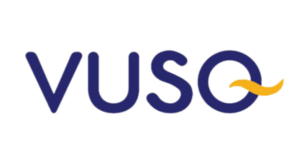
Issue No. 1 – November 2025
The purpose of this review is to provide an analysis of the current situation in the Ukrainian currency market and forecast the hryvnia exchange rate against key currencies based on the latest data. We analyze current conditions, market dynamics, key influencing factors, and likely scenarios.
Analysis of the current situation on the currency market
International context
The global FX market was influenced by several important factors in the first half of November. The first was the October Fed rate cut by 25 basis points to the range of 3.75-4%. The second was the expectation of fresh statistics on the US labor market and the resumption of the US government’s work. In addition, investors and currency fluctuations in the EUR/USD pair were influenced by expectations of the next step of the Fed Committee – another key rate cut is expected in December.
While the rate cut at the end of October had already been factored into exchange rate fluctuations, labor market data worried investors. And, as it turned out, for good reason. At a briefing on October 29, Fed Chairman Jerome Powell said that conditions in the US labor market were cooling. In November, this was also confirmed by statistics: according to ADP, American companies cut more than 11,000 jobs every week until the end of October, indicating a weakening labor market. Although preliminary data showed that in October, a total of 42 thousand new jobs were created in the United States compared to September, ADP noted that in the second half of October, the labor market had difficulty creating jobs. This leads analysts and traders to believe that the Fed will have to make another key policy rate cut in December.
The above factors influenced the dollar’s exchange rate behavior, which in the first half of November initially gained ground on positive expectations and reached 1.1473 on November 5, but then began to pull back towards a weaker dollar, and as of November 14, the rate actually returned to the level it was at on the eve of the Fed Committee meeting in October – 1.1625. New labor market statistics, negative expectations of further market cooling due to government layoffs, and the forecast of further Fed rate cuts played against the dollar.
Another factor influencing the currency market is the US-China relationship, but it is not stressful yet. On November 10, China announced that it was fulfilling its promise to combat chemicals that can be used to produce fentanyl, which was a key issue for US President Donald Trump during his talks with Chinese leader Xi Jinping in October. China has already announced new restrictions on the export of 13 chemicals to the United States, Canada, and Mexico. Improved relations between the US and China will definitely have a positive impact on the US dollar.
Meanwhile, in mid-November, the euro demonstrated a strengthening, in part due to the conservative policy of the European Central Bank, which left rates unchanged at the end of October, stating that inflation in the eurozone remained under control. All three key interest rates were kept at the same level. According to the ECB, inflation in the euro area remains close to the medium-term target of 2%. The ECB Governing Council’s overall assessment of the inflation outlook has not changed. However, the EU is talking about global challenges and uncertainty due to tariffs and geopolitical tensions. These factors remain the main risks to the euro area economy at the end of 2025.
Domestic Ukrainian context
In early November, exchange rate fluctuations were noticeable in the Ukrainian currency market, with the trend of devaluation of the national currency continuing. However, the National Bank of Ukraine’s participation in interventions has a stabilizing effect. Since the beginning of November, the hryvnia has been gradually weakening against the dollar: as of November 1, the official exchange rate was at UAH 41.97 per dollar, and as of November 14, it was at UAH 42.06 per dollar. There are also fluctuations in the cash market, but they are rather insignificant: in mid-November, the average selling rate was 42.30 UAH/USD, while at the beginning of the month it was 42.14 UAH/USD.
Demand for foreign currency continues to be high. Demand growth was also recorded in October. According to the NBU, this applied to both the interbank foreign exchange market and the cash segment. In total, last month the NBU increased its interventions in the interbank market by 27.3% or USD 625.3 million to USD 2.915 billion. According to the regulator, in October the population purchased $162 million more in cash than in September, bringing the total amount of foreign currency purchases to $1.458 billion.
If we analyze the net purchase of foreign currency by households, the amount in October is twice as much as in September – $0.75 billion last month versus $0.38 billion in September. This trend is quite expected. It is likely to continue in November, as the domestic situation in the country remains tense due to regular attacks by the Russian Federation, and the schedules of power outages caused by enemy attacks add to the need to purchase imported equipment, which may put pressure on the demand for foreign currency on the interbank market, and to the formation of household savings, which is reflected in the cash segment.
In the challenging conditions of the new heating season, when the energy sector is under the aggressor’s sights, Ukraine needs additional funds, which should also support macrofinancial stability. The government has announced good news in this regard. We are talking about EUR 5.9 billion from the European Union: EUR 4.1 billion came under the ERA Loans mechanism, the last tranche of the EUR 18 billion program financed from the proceeds of frozen Russian assets. Ukraine received another EUR 1.8 billion under the Ukraine Facility program.
As for the NBU’s reserves, Ukraine’s international reserves amounted to USD 49.516 billion at the beginning of November, and they grew by 6.4% in October. The growth was primarily driven by new inflows from international partners, which exceeded the NBU’s net sales of foreign currency and the country’s foreign currency debt payments. Thus, the situation with reserves does not raise any questions at the moment, and the NBU has enough funds to support the foreign exchange market for a long time and to intervene to smooth out exchange rate fluctuations.
US dollar exchange rate: dynamics and analysis
General characteristics of market behavior
November’s fluctuations in the Ukrainian currency market have been slow: the US dollar has been strengthening, but without sharp movements and under the control of the NBU.
Over the past two weeks, the exchange rate has changed as follows: the average buying rate has increased from 41.61 UAH/$ to 41.8 UAH/$, the selling rate from 42.19 UAH/$ to 42.25 UAH/$, and the official NBU rate from 41.97 UAH/$ to 42.06 UAH/$.
In the first half of November, the buying rate was in the range of UAH 41.66-41.82/$ on the cash market (weighted average rate), and the selling rate was in the range of UAH 42.05-42.2/$. The spread between the buying and selling rates is gradually increasing at the banks’ cash desks: in large retail banks, it amounted to UAH 0.5-0.6 per dollar in mid-November.
Key factors of influence
Forecast.
Euro exchange rate: dynamics and analysis
General characteristics of market behavior
The euro grew steadily stronger on the Ukrainian market in the first half of November: within two weeks, the official euro exchange rate moved from 48.51 UAH/€ to 48.65 UAH/€.
Key observations
Ø Exchange rate geometry:
o The euro’s selling rate in the first week of November remained almost unchanged, hovering around 48.52 UAH/€. However, after November 10, a trend toward a stronger euro was clearly evident.
o The euro’s buying rate continues to move in the opposite direction to the selling rate, and the spread between bank rates is growing, reaching UAH 0.9-1 per euro as of mid-November.
Ø Supply and demand:
o The demand for cash euros is growing in parallel with the growth in demand for the dollar: according to the NBU, purchases of cash euros by households in October increased by 202.9 million to USD 724.6 million in dollar terms, while sales decreased by 6.1 million to the equivalent of USD 314.1 million.
o The continued growth of the spread between buying and selling euros gives financial institutions the opportunity to hedge against a possible sharp change in the trajectory of the euro, which is characterized by high volatility in both the international and Ukrainian markets.
Key factors of influence
Forecast.
Recommendations: dollar or euro – buy, sell, or wait?
USD/UAH
The strengthening of the dollar, which the markets have been anticipating due to the Fed’s transparent policy and optimistic expectations for the US economy, is gradually giving way to some disappointment as fresh statistics are released. Even the easing of tariff tensions does not help the dollar, which, after a short-term jump to 1.1479 in early November, returned to 1.1630 in the middle of the month.
Despite global skepticism about further dollar gains, the dollar will remain the main currency in the savings structure for investors, which means that dollar purchases continue to be part of both long-term and short-term investment strategies.
Since Ukraine has a strong devaluation trend, dollar savings will serve as the basis for future decisions by investors to exit some dollar investments with a clear profit. However, this is a long-term strategy, and possible short-term depreciation of the dollar to the level of 41.79-41.91 UAH/$ will serve as a signal for the next tranche of purchases of the US currency.
EUR/UAH
Like the dollar, the euro is showing a tendency to strengthen on the Ukrainian market. Traditionally, however, the level of volatility of the euro, coupled with high spreads, does not allow one to count on stable, calculated investment income. However, in order to diversify part of their savings, investors can focus on a plan that includes buying tranches of euros at times of a clear depreciation. It is advisable to keep euros in the portfolio, but not more than 35% of all savings in foreign currencies. November is the time to buy euros, not sell them.
Overall strategy
Expectations of a Fed key rate cut and the latest US labor market data are contributing to a weaker US currency. Meanwhile, the ECB’s conservative stance and the EU’s hopes for an acceleration in the eurozone’s economic development are significantly supporting the euro.
In the near future, investors should choose the dollar as their savings base, but not ignore the euro, which, against the backdrop of the Fed’s policy and the lack of positive signals about the revitalization of the US labor market, may well be part of a profitable investment strategy.
In November, expectations of further hryvnia depreciation prevail, allowing investors to plan both a medium- and long-term strategy to strengthen their foreign currency savings. The main rule: no sudden movements, but steadily. The dollar is an important underlying asset that forms a reliable, low-risk portfolio. The euro is an opportunity to play on exchange rate fluctuations over the next 3-4 months. Both currencies are currently advisable to buy for different investment strategies, carefully analyzing exchange rate movements and understanding the likely forecast exchange rate fluctuations.
This material has been prepared by analysts of the international multiservice FinTech product platform KYT Group and reflects their expert, analytical professional judgment. The information presented in this review is for informational purposes only and cannot be considered as a recommendation for action.
The Company and its analysts make no representations and assume no liability for any consequences arising from the use of this information. All information is provided “as is” without any additional warranties of completeness, obligations of timeliness or to update or supplement.
Users of this material should make their own risk assessment and informed decisions based on their own evaluation and analysis of the situation from various available sources that they consider to be sufficiently qualified. We recommend that you consult an independent financial advisor before making any investment decisions.
REFERENCE
KYT Group is an international multi-service marketplace FinTech product platform that provides financial companies with access to services for promoting their services, as well as advertising and consulting services.

In January-October of this year, Ukraine reduced exports of titanium-containing ores and concentrates in physical terms by 95.2% compared to the same period last year, to 277 tons.
According to statistics released by the State Customs Service (SCS) on Wednesday, exports of titanium-containing ores and concentrates fell by 94.7% in monetary terms, to $496,000. The main exports were to Uzbekistan (35.61% of shipments in monetary terms), Turkey (35.01%), and Egypt (29.38%).
In addition, Ukraine imported 78 tons of titanium-containing ore worth $117,000 from China (98.29%, deliveries took place in January) and Kazakhstan (1.71%, deliveries took place in May) in the first 10 months of 2025.
During this period, Ukraine exported 2,466 tons of niobium, tantalum, vanadium, and zirconium ores and concentrates worth $3.954 million to Spain (48.90%), Germany (24.53%), and Italy (17.19%). At the same time, the country imported 417 tons of such ores worth $1.068 million from Spain (72.38%), the Czech Republic (12.73%), and China (12.45%).
As reported, in 2024, Ukraine reduced its exports of titanium-containing ores in physical terms by 37.5% compared to the previous year, to 7,284 thousand tons. In monetary terms, exports of titanium-containing ores and concentrate decreased by 40% to $11.654 million. The main exports were to Turkey (62.82% of supplies in monetary terms), Egypt (7.38%), and Poland (6.93%).
Last year, Ukraine imported 314 tons of titanium-containing ore worth $492 thousand from China (87.78%), Vietnam (6.11%), and Senegal (also 6.11%).
At the same time, experts pointed out the inconsistency of statistics on exports of titanium-containing ores. However, in response to a request from Interfax-Ukraine, the State Customs Service (SFS) of Ukraine stated that complete data on the export of titanium raw materials is not provided due to restrictions on the volume of export and import operations with military and dual-use goods, which are reflected in aggregate form under “Other goods.” They explained that, in particular, deliveries of titanium-containing ores from companies differ from the SCS data.
“We would like to inform you that these deliveries are included in the statistical exports from Ukraine, but are not reflected in the foreign trade statistics published by the State Customs Service (…) under commodity item UKTZED 2614 ”Titanium ores and concentrates” in view of the following (…) In accordance with the provisions (…), when protecting data for confidentiality purposes, any information considered confidential is reported in full at the next, higher level of product data aggregation,” the State Customs Service explained in its response to the agency.
It was clarified that information on customs clearance and movement across the customs border of Ukraine of goods subject to export control is included in the list of information containing official information in the SSU, in accordance with the relevant order.
In Ukraine, titanium-containing ores are currently mined mainly by PJSC “United Mining and Chemical Company” (UMCC), which manages the Vilnohirsk Mining and Metallurgical Plant (VGMK, Dnipropetrovsk region) and the Irshansk Mining and Processing Plant (IGZK, Zhytomyr region), as well as LLC “Mezhirichensky GZK” and LLC “Valky-Ilmenite” (both LLCs are located in Irshansk, Zhytomyr region). In addition, the production and commercial firm Velta (Dnipro) built a mining and processing plant at the Birzulivskyi deposit with a capacity of 240,000 tons of ilmenite concentrate per year.

According to Serbian Economist, Michal Strnad’s Czech defense and industrial holding company Czechoslovak Group (CSG) has acquired a controlling stake in Belgrade-based Mechatronics Unmanned Systems & Technology Solutions (MUST Solutions), which manufactures power plants and components for drones.
According to sources, the purchase was made through a new subsidiary, AviaNera Technologies: CSG acquired 51% of the shares from the company’s founder, Vladimir Yazarevic; the amount is undisclosed. MUST specializes in the development and production of compact turbojet and other propulsion solutions for UAS (propulsion systems), which expands CSG’s portfolio in the unmanned systems segment.
CSG notes that the asset will deepen the holding’s expertise in high-tech UAV subsystems and integrate the Serbian development base into the European supply chain.
CSG is one of the largest private defense and industrial holdings in Central Europe (Tatra Trucks, Fiocchi Munizioni, etc.), actively expanding through M&A; its owner is Michal Strnad, who was named the richest Czech in 2025 by a number of ratings. According to Forbes/Bloomberg, the growth took place against the backdrop of increased demand for weapons and ammunition; the group is expanding its presence in Europe and the US.
MUST Solutions (Belgrade) is an engineering company specializing in power plants and components for UAVs; after the deal, control (51%) passed to CSG (through AviaNera), while founder Vladimir Yazarevich retained his stake. The company is known for developing small jet and other engines for UAS.
Source: https://t.me/relocationrs/1749

At a meeting to be held from November 27 to December 4, shareholders of IC “VUSO” (Kyiv) plan to decide on the allocation of UAH 20.013 million of confirmed undistributed profit for 2024 to dividend payments.
As reported by the company in the information disclosure system of the National Securities and Stock Market Commission (NSSMC), the remaining profit for 2024 in the amount of UAH 98.811 million is planned to be left undistributed.
The company also reports that the net confirmed undistributed profit for 2024 amounts to UAH 118.824 million.
The agenda of the meeting states that dividends will be paid at a rate of UAH 0.73 per share. Dividends will be paid in full directly to shareholders in accordance with the procedure established by law within six months from the date of the relevant decision by the general meeting of shareholders.
VUSO Insurance Company was founded in 2001. It is a member of the Motor Transport Insurance Bureau of Ukraine and the Ukrainian Financial Services Association, a participant in the Agreement on Direct Settlement of Claims, and a member of the Nuclear Insurance Pool.
In 2024, the company collected UAH 3.462 billion in gross premiums, which is 29.3% more than in 2023, the company’s net premiums increased by 25.55% to UAH 3.105 billion, and net earned premiums increased by 15.83% to UAH 2.737 billion.
In 2024, VUSO Insurance Company paid out UAH 1.414 billion to its clients, which is 45.40% higher than the amount of insurance payments and reimbursements in 2023. Thus, the payout ratio increased by 4.52 percentage points (pp) to 40.85%.
As of January 1, 2025, the insurer’s assets increased by 25.76% to UAH 1.917 billion, equity capital by 22.45% to UAH 755.839 million, liabilities increased by 28.01% to UAH 1.161 billion, cash and cash equivalents increased by 36.09% to UAH 758.730 million.

The volume of passenger car imports to Ukraine, including cargo-passenger vans and racing cars (UKT ZED code 8703), in January-October 2025 amounted to almost $4.82 billion, which is 32.6% more than in the same period of 2024 ($3.63 billion) and 10% more than in the whole of 2024.
According to statistics released by the State Customs Service of Ukraine, the growth rate of passenger car imports has thus accelerated, reaching 27.4% in the first nine months of the year compared to the same period in 2024.
In October this year, passenger cars worth $647.8 million were imported into Ukraine, which is 81% more than in October last year.
The top three suppliers of cars to Ukraine in January-October this year were Germany, the US, and China, while last year they were the US, Germany, and Japan. In particular, car deliveries from Germany increased by 52% to $841.3 million, and their share in the structure of car imports was 17.45% compared to 15.23% a year earlier.
Cars worth $839.7 million (25.4% more) were imported from the US to Ukraine, and $663 million (13.8% of passenger car imports) from China. Last year, imports from Japan, which was among the top three leaders, amounted to almost $430 million (11.8%).
Imports of passenger cars from other countries during the period amounted to $2.476 billion, compared to $1.981 billion in January-October 2024.
At the same time, in the first 10 months of this year, Ukraine exported only $7.17 million worth of such vehicles, in particular to the UAE, Canada, and the US, while a year ago, during the same period, the country supplied $9.33 million worth of such vehicles to foreign markets, mainly to Canada, Germany, and the US.
According to the State Customs Service, in the overall structure of imports of goods to Ukraine in January-October 2025, the share of passenger cars was 7.1% (6.3% last year), and in the structure of exports – 0.02% (0.03%).
As reported, in 2024, passenger cars worth $4.385 billion were imported into Ukraine, which is 8% more than a year earlier, and $10.1 million worth were exported (2.7 times less).

In January-October 2025, Ukraine increased imports of aluminum and aluminum products by 14.8% to $432.08 million, while exports grew by 21.4% to $128.14 million.
In October, aluminum imports amounted to $42.85 million, and exports amounted to $15.71 million.
For comparison, in 2024, aluminum imports increased by 21.7% to $446 million, and in 2023, by 7.7% to $366 million.
Aluminum is widely used as a structural material. The main advantages of aluminum are its lightness, malleability, corrosion resistance, high thermal conductivity, and the non-toxicity of its compounds.
In particular, these properties have made aluminum extremely popular in the production of kitchenware, aluminum foil in the food industry, and for packaging. The first three properties have made aluminum the main raw material in the aviation and aerospace industries (recently, it has been replaced by composite materials, primarily carbon fiber). After construction and packaging production—aluminum cans and foil—the largest consumer of metal is the energy industry.